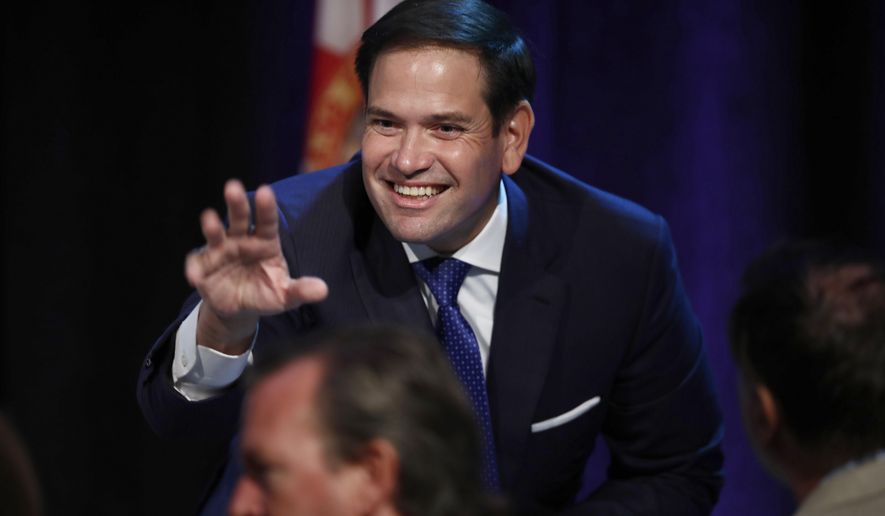Sen. Marco Rubio on Tuesday argued for scrapping America’s economic order in favor of a “common-good capitalism” in order to effectively compete with a rising China.
The Florida Republican ripped the “false choice” put forward by the right and left on economics in remarks at the Catholic University of America in D.C., stressing that his alternative was not about defining a post-Trump conservative way forward.
“China is undertaking a patient effort to reorient the global order to reflect their values and their interests and to do so at the expense of ours,” Mr. Rubio said. “[I]n this competition with a near-peer, adversary, and competitor that happens to have three times our population, we need all hands on deck. We can’t afford to leave anyone behind.”
Mr. Rubio, a Senate Finance Committee member, said he was still a champion of the free market but he thought the market would not single-handedly provide the necessary balance between the obligations and rights of the private sector and of American workers.
“The point being in all of this is that it is impossible no matter how much you grow your economy … no matter how great things may be for many people, it is impossible to be a great and strong country if millions and millions of your people, large percentages of your people, feel locked out from it and left behind,” Mr. Rubio said. “Now, before anyone watching or listening freaks out and says, ’Oh my gosh, what’s happened? He’s transformed into someone from the left,’ I will tell you that I think socialism, for as bad as all this is, I think socialism would be far worse.”
Mr. Rubio defined his alternative “common-good capitalism” as “a system of free enterprise in which workers fulfill their obligation to work and they enjoy the benefits of their work, and where businesses enjoy their right to make a profit and reinvest enough of those profits to create dignified work for their workers and for America.”
Mr. Rubio pointed to bias in the tax code and American’s dependence on China for rare earth minerals as examples of problems that need to be rectified by a “common-good capitalism” that does not only rely upon the market or the government to solve society’s problems.
He detailed his proposed overhaul of America’s economic order at Catholic University in a conversation about the intersection of human dignity and capitalism.
Not everyone in the viewing audience was on board with Mr. Rubio’s message.
“I give Marco Rubio credit for challenging a profit-only business mentality and a culture of greed,” said John Gehring, the Catholic program director at the progressive group Faith in Public Life, in a tweet. “But many of the policies he’s supported helped create the same trends he denounced in his Catholic University speech.”
• Ryan Lovelace can be reached at rlovelace@washingtontimes.com.




Please read our comment policy before commenting.